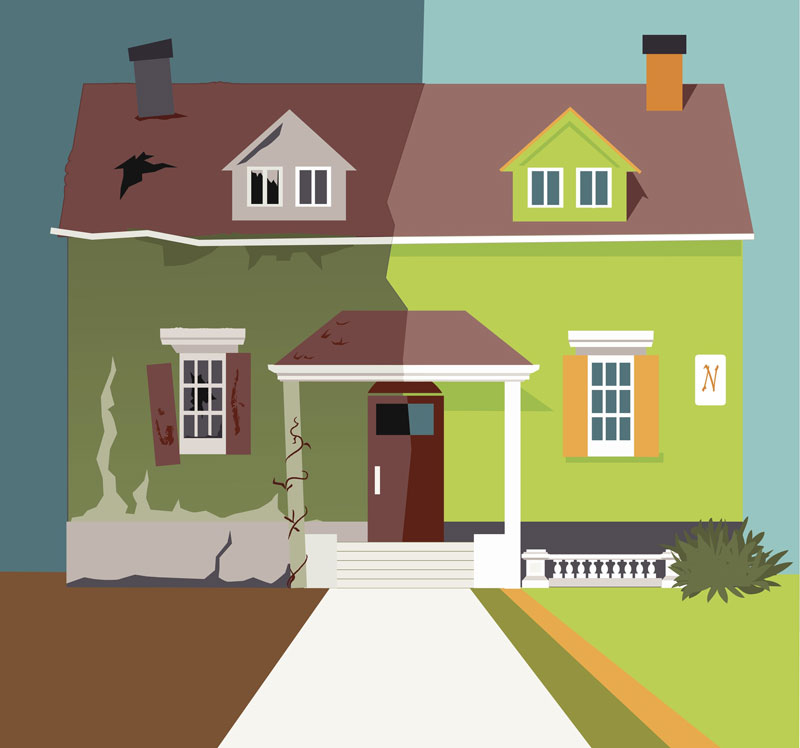How to Get a Loan to Flip a House
Triston Martin
Nov 20, 2023
House flipping is a real estate business where you acquire inexpensive properties that need repair, fix them up, and then resell them for a profit. House flipping may be a lucrative method to generate money, but it also carries significant financial risk, particularly for those just starting. Profit margins and sales of properties flipped in 2020 decreased, according to statistics from March 2021. However, considering the COVID-19 epidemic, scientists believe these figures are not surprising. If you want to acquire properties to fix up and sell but don't have the funds, you'll need a bank loan to get started. Mortgage interest rates are at an all-time low as of the second quarter of 2021, but you'll need strong credit to acquire one. Let us see how to get a loan to flip a house.
How Much It Costs to Flip A House
Purchasing, improving, and selling real estate quickly may be rewarding; nevertheless, the expenses associated with flipping a house are far more than the expenditures related to buying a property. You won't only need money to buy the house; you'll also need it to fix it up, pay the property taxes, pay the utilities, and pay the homeowner's insurance from the day the transaction closes until the day it sells or until the repairs are finished.
Short-term capital gains tax rates ranging from 10% to 37%, depending on your federal income tax band, can eat into any earnings you generate from selling a home within a year. It isn't easy to get started flipping properties if you don't have any money to invest. It's no longer 2005 when anybody who could fog a mirror could obtain a mortgage with no money down. Even if you can secure a loan with a down payment, borrowing money to flip property will cost you more than buying a home to live in. Lenders believe that flipping is a riskier investment.
Furthermore, many lenders would not cooperate with first-time flippers. They will want to see the documentation that you have previously sold at least one house for a profit. Others may cooperate with a novice flipper, but they will ask for higher fees and interest rates.
Hard Money Loans

Experts disagree on why hard money is named such. Some interpret this to suggest that it is much more costly and has "harder" conditions than standard finance. Others argue that it enables consumers to purchase houses that are "difficult" for conventional lenders. Some say that the phrase alludes to the physical asset backing the loan, which in this instance is the property.
Hard money loans, regardless of origin, often last shorter than a year and carry interest rates ranging from 11.9% to 17.9% + 2–5 percent. If you lend $111,999 and the creditor costs two points, you have to pay 2% of $2,250 and $111,999. A typical mortgage requires you to pay points at the closing, but a hard money loan may not need you to pay points until the home sells. This is the only advantage of hard money. The amount you may borrow from hard money lenders is determined by the worth of the residence after repairs (ARV).
Where to Find Loan Providers
One place to seek a hard money lender is online. For example, Lima One Capital will deal with first-time flippers and lend up to 90% of the loan-to-cost or 75% of the loan-to-ARV. Charges and interest charges decrease when a borrower flips additional properties. Lima One loans in many states, but each has special fees and rates. Borrowers with credit ratings below 680 will be allowed to borrow somewhat less and will be required to pay the most. The lowest possible score is 660. Lima One Capital also asks for a 10% down payment and allows you up to 13 months to repay the loan.
Conclusion
If you don't have enough cash to flip property on your own or if you have but want to minimize your risk, there are various options. You may seek aid flipping properties through a hard money lender, a private lender, or a platform that allows individuals to pool their money to acquire real estate. These choices are more costly than a standard mortgage for the owner's primary residence. Nonetheless, their rates reflect the lender's significant risk and how improbable it is that you would be able to get a low-interest bank mortgage to flip a property.







